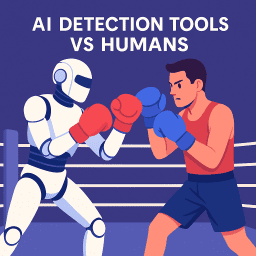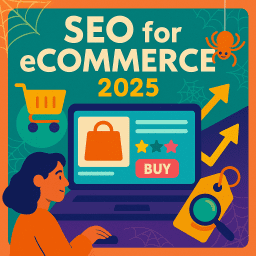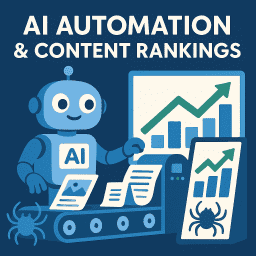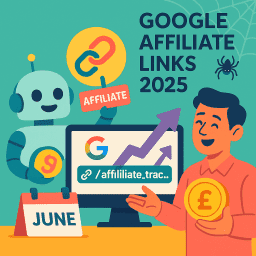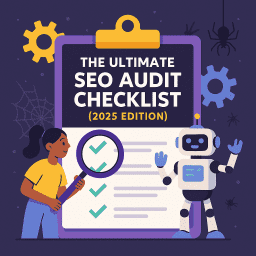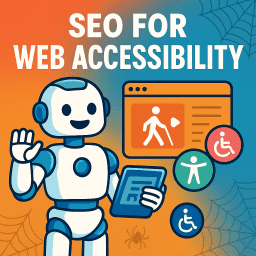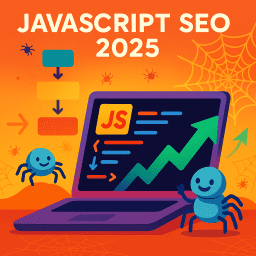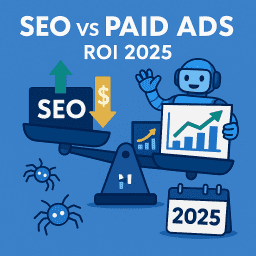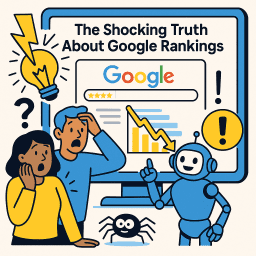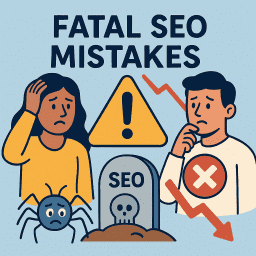Why Homepage SEO Is Dead in 2025 – Focus Here Instead
Focus on the right pages for 2025 and beyond
💡 The SEO Shift: Why Other Pages Matter More
Once upon a time, your homepage was the hero of your website. It carried all your keywords, got all the attention, and was the prime target for ranking in Google. But fast-forward to 2025, and the story has changed dramatically.
Google—and users—don’t care as much about your homepage anymore. If you’re still investing all your SEO effort into it, you’re probably leaving real results on the table.
This post explains why homepage SEO is dead (or at least on life support), and what you should be doing instead to grow your rankings and conversions.
🪦 Why Homepage SEO Is No Longer Enough
Your homepage serves an important function: it’s your digital welcome mat. But it’s not designed to rank for dozens of detailed queries. Here’s why it’s lost its SEO dominance:
- 🎯 It’s too general—homepages cover broad ideas, not specific user intent.
- 🔍 It’s not keyword-rich—ranking for niche or long-tail terms from your homepage is nearly impossible.
- 📉 It splits attention—homepages try to do everything, so they rarely do anything well in SEO terms.
📄 What Google (and Users) Really Want
Today, search engines prioritise pages that answer specific questions. That means:
- 📝 Blog posts that solve problems or provide information
- 🧾 Service pages that clearly explain what you offer
- 💬 FAQ and resource pages that match long-tail keywords and search intent
Your homepage isn’t likely to appear in the AI-powered “zero-click” results either—because it’s not specific enough. Google’s machine learning models reward clarity and relevance, not vague overviews.
📌 Where You SHOULD Focus Your SEO
If your homepage is no longer the primary SEO asset, where should you spend your time?
1. 🔧 Service Pages
Each core service deserves its own optimised page. These are easier to match with user queries like “roof repairs in Leeds” or “small business SEO packages.”
- ✅ One page per service
- ✅ Include FAQs, benefits, and internal links
- ✅ Use structured data for better visibility
2. 📰 Blog Content
Blogs are SEO gold when done right. Google loves fresh, topical content that’s helpful, well-structured, and keyword-targeted.
- ✅ Focus on answering specific questions
- ✅ Target long-tail keywords with real search intent
- ✅ Build topic clusters for authority and internal linking
3. 📁 Category & Hub Pages
These act as SEO powerhouses when built correctly. They group related content and help users (and crawlers) navigate your site easily.
- ✅ Use these pages to organise blogs or services
- ✅ Optimise them for medium-tail keywords
- ✅ Include short summaries and links to subpages
🔄 What To Do With Your Homepage Instead
Don’t abandon your homepage—just change how you use it:
- 🏠 Use it to establish brand identity, trust, and navigation
- 🧭 Include strategic internal links to key SEO pages
- 📣 Focus on clarity and user flow, not stuffing it with keywords
Think of your homepage as a “branding hub” rather than a search engine magnet.
🧠 Final SEO Tips
- 🧩 Make sure each page has one clear topic and focus keyword
- 🪛 Structure your site around search intent, not design trends
- 🔗 Use internal linking to direct authority to important pages
- 📐 Measure page-level performance in GA4 and GSC—not just homepage traffic
✅ Conclusion
Homepage SEO had its moment—but that moment has passed. In today’s AI-driven, intent-focused search world, it’s your blogs and service pages that drive rankings, traffic, and conversions.
Stop relying on your homepage to do the heavy lifting. Shift your SEO strategy to where it actually matters—and you’ll see the difference in your results.
“Modern SEO isn’t about optimising your homepage. It’s about matching every single page to user intent—precisely, strategically, and consistently.”
– David Roche
📝 Recap and Clarify: Post-Specific FAQs
Why do you say “homepage SEO is dead” in 2025?
Because homepages are broad, thin on keywords, and rarely match specific search intent; Google now rewards pages that answer a precise query instead of generic overviews.
Which pages should get my primary SEO effort instead?
Optimise dedicated service pages, well-researched blog posts, and topic-hub or category pages—they align far better with long-tail and intent-driven queries.
Do I still need to optimise my homepage at all?
Yes—but treat it as a “branding hub.” Use it for trust signals, clear navigation, and internal links to high-value SEO pages rather than stuffing it with keywords.
How can separate service pages boost rankings?
A one-service-per-page approach lets you target location- or problem-specific keywords (e.g., “roof repairs in Leeds”), include FAQs, and add structured data—all of which improve relevance and click-through.
Why do blog posts outperform the homepage for SEO now?
Fresh, topical articles answer users’ specific questions, target long-tail phrases, and slot neatly into topic clusters—criteria Google’s AI-driven ranking systems prioritise in 2025.
Are category or hub pages still useful?
Absolutely—well-structured hub pages group related posts/services, help crawlers understand topical relationships, and rank for medium-tail keywords while funnelling link equity deeper.
How should I handle internal linking if the homepage isn’t the focus?
Point links from your homepage to priority service, hub, and blog pages, then interlink those pages in clusters so authority flows horizontally—not just up and down the home→sub-page path.
How do I measure success if I stop obsessing over homepage traffic?
Track page-level metrics in Google Analytics 4 and Search Console: organic sessions, rankings, and conversions for each service, blog, or hub page. Aggregate those numbers instead of relying on a single homepage figure.
Is homepage SEO totally useless now?
No—it still matters for branded searches and first impressions. What’s changed is that it’s no longer the main driver of rankings for non-branded, intent-specific queries.
Bottom line: what’s the 2025 SEO priority?
Match every standalone page to a single, well-defined intent—then reinforce it with clear structure, internal links, and user-centric content. That’s where rankings and conversions grow in 2025.




